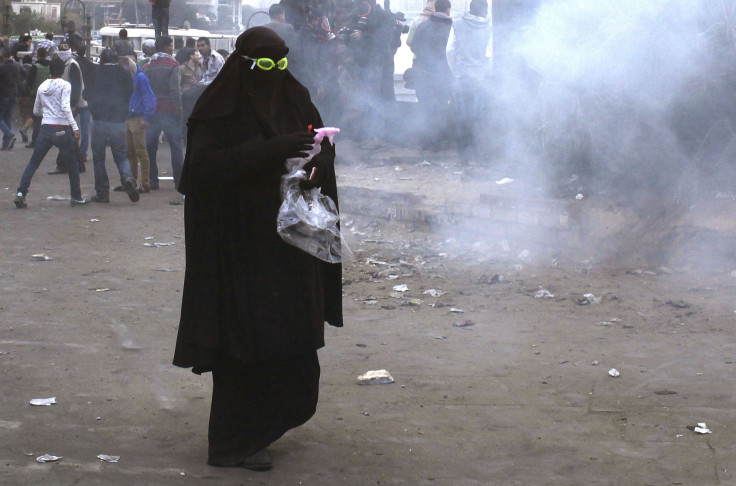Burqa Bans Rising In Sub-Saharan Africa As States Fret Over Threat Posed By Suicide Bombers Wearing Full Body Veils

When Republican presidential candidate Donald Trump was asked earlier this month if burqas should be banned, the billionaire real-estate magnate didn’t hesitate to take sides. “Yes. I’m OK with that,” he told Boston Herald Radio, referring to the restrictive full-body and face veil worn by some Muslim women.
In the United States and Europe, the debate over how much of a woman’s body should be covered tends to focus on issues about gender equality and public contact. Should an ultra-austere woman, for example, be given special allowance to wear a mask for religious reasons when others would be prohibited from doing the same? Is a woman covering her face and body by personal religious choice or is she being compelled by parents, brothers or a husband to do so?
But increasingly questions are being raised about security concerns in sub-Saharan Africa where Boko Haram, the radical Islamist militant group operating out of northern Nigeria, has conducted numerous terrorist operations. In some cases burqas have been used by suicide bombers to infiltrate crowded places, not just in African states but also Pakistan, Afghanistan and Saudi Arabia.
A loose-fitting burqa hides a person's gender and allows ample room for wearers to conceal bomb vests. When a male suicide bomber wearing a burqa murdered 15 people in Chad's capital, N'Djamena, last summer it came amid increasing scrutiny in the region over the security threat posed by allowing full face and body veils.
Last June, Chad’s government banned the burqa amid a raft of fatal suicide bombings, saying the garb was being used as "camouflage" by militants. Amid a growing regional threat posed by Boko Haram, the Islamic State group-aligned, Nigeria-based radical Islamist group that threatened four West African countries, local governments have adopted Trump’s burqa-ban stance.
In July, Cameroon followed Chad’s example, banning the garb in five of its 10 provinces, while Niger implemented the ban in its restive Diffa province. The Republic of Congo also prohibited the burqa last year. In Nigeria, President Muhammadu Buhari is mulling a similar policy. Senegal is, too.
Security measures have been implemented in the region in recent months to combat a rising tide of suicide bombings, including curfews, increased scrutiny of vehicles with tinted windows, and even a ban on motorbikes (a preferred bomb-delivery device) in crowded areas.
Most people in Chad, Senegal and Niger are Muslim while one in five Cameroonians practice Islam. But historically, adherents in the region have been adverse to extreme Islamic expressions, including the full face veil and the baggy, black burqa, which are considered by many in the region to be a practice foreign to local traditions. Muslim women in the region have historically leaned toward colorful, face-exposing head scarves.
But in the past few decades, owing largely to Saudi Arabia’s efforts to spread its super-strict brand of Islam, the full black body veil has taken root in sub-Saharan Africa.
“We thought it would never be part of the culture in Senegal, but more and more people are following these rituals,” Aliou Ly, a Senegal-born assistant professor at Middle Tennessee State University, told The Economist in a report published Saturday.
© Copyright IBTimes 2024. All rights reserved.





















